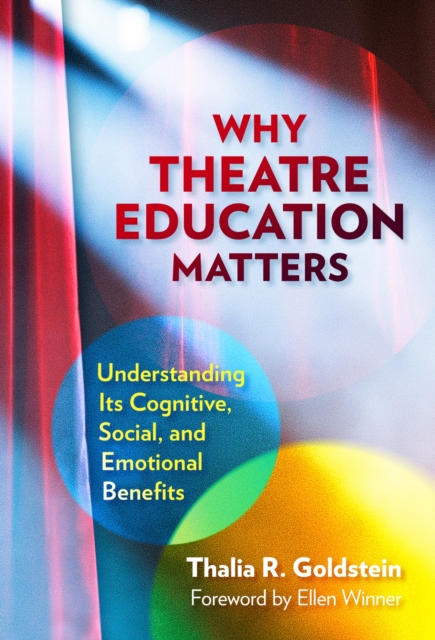
Why Theatre Education Matters : Understanding Its Cognitive, Social, and Emotional Benefits Hardback
by Thalia R. Goldstein, Ellen Winner
Hardback
Description
Discover the cognitive, social, emotional, and other psychological benefits of learning how to act and perform.
This book looks behind the curtain of theatre education to see how thinking on stage happens in real secondary classrooms.
Reporting on the first large scale systematic qualitative analyses of acting classes for adolescents, the author introduces the eight Acting Habits of Mind--thinking strategies to solve problems and creatively complete tasks.
Each Habit is tied to current scientific research findings for related psychological constructs, including creativity, self-esteem, empathy, emotion regulation, and well-being.
Connections are then made to individual student needs, future research, and the complexity of theatre education.
Based in the science of development and actual theatre education in a variety of setting and with a diversity of students, this book provides an answer to the question, "What, psychologically, is an acting class?" Every educator, administrator, and arts lover can use this book to not only better understand and advocate for their art forms, but also to demonstrate why theatre should be included in schools. Book Features:A go-to text for any theatre educator challenged to justify the teaching of acting in schools--uses systematic empirical evidence to show the psychological foundations of acting classes and how students learn to think on stage. A reference text for graduate study--discusses the cognitive, emotional, and behavioral techniques underlying acting exercises and moments in teaching. A summary of current knowledge in the transfer effects of theatre--offers a full exploration of the psychological underpinnings of acting classrooms across contexts, student type, and community. Exercises and techniques from acting classes across a variety of contexts--showing how they are tied to research-based psychosocial constructs, skills, and abilities. A foundation from which future tests of the effects of theatre education can be built--includes studies relevant to constructing policy and practice of arts education and developing interventions that use techniques and theories from theatre education.
Information
-
Pre-Order
- Format:Hardback
- Pages:272 pages
- Publisher:Teachers' College Press
- Publication Date:26/07/2024
- Category:
- ISBN:9780807769997
Other Formats
- Paperback / softback from £39.95
Information
-
Pre-Order
- Format:Hardback
- Pages:272 pages
- Publisher:Teachers' College Press
- Publication Date:26/07/2024
- Category:
- ISBN:9780807769997






